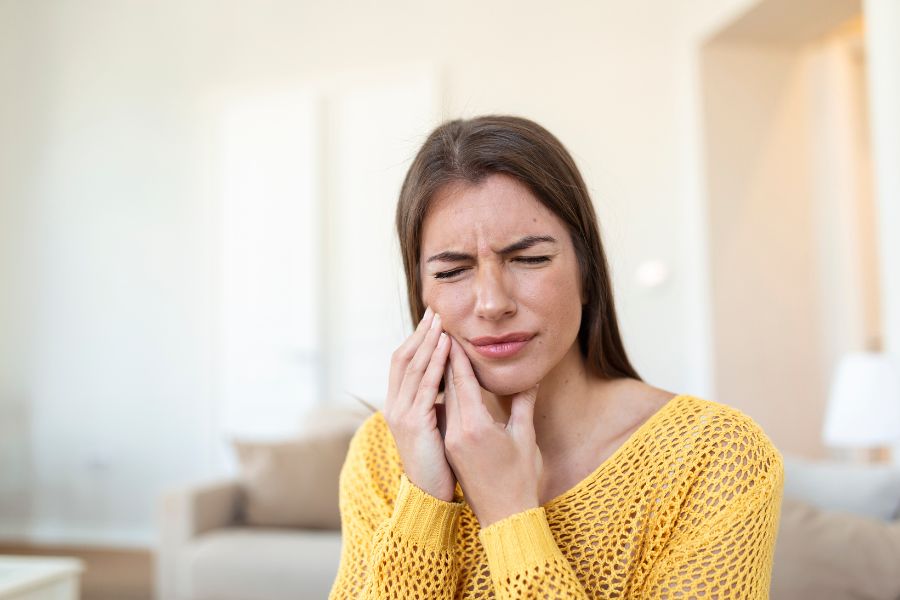Bruxism may not always be easy to detect, especially when it happens during sleep. However, regular dental check-ups can help in early identification. Dentists can examine your mouth and jaw for telltale signs, such as excessive tooth wear, damaged enamel, and jaw muscle tenderness. Other symptoms could include persistent headaches or facial pain. If your dentist suspects bruxism, they may recommend further tests or refer you to a sleep specialist.The Mayo Clinic offers more in-depth information on bruxism symptoms and causes.
The exact cause of bruxism is not entirely understood, but it’s believed to be a combination of physical, psychological, and genetic factors. Stress, anxiety, aggressive personality types, and certain psychiatric medications are often linked to bruxism. Furthermore, it can also be hereditary.
Tooth Damage
Jaw Disorders
While there’s no definitive cure for bruxism, a variety of strategies can help manage the condition and limit its impact on your oral health:
Dental Solutions
Behavioral and Psychological Therapies
Medications
Although not typically the first line of treatment, medications may be considered in severe cases or when other management strategies have proven ineffective. These could include muscle relaxants before bedtime or Botox injections to weaken the muscles involved in severe grinding.
Bruxism can pose a severe threat to your oral health if left unchecked, leading to tooth damage and other complications. Recognizing and effectively managing bruxism is therefore key. If you suspect that you or a family member may be suffering from bruxism, don’t hesitate to consult a dental professional. Early diagnosis and intervention can go a long way in preserving your oral health and overall wellbeing.

